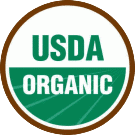Order products!
About our farm
Farm blog
Why grass fed?
Why organic?
Why soy-free?
Why eat local?
Our difference
FAQ's
Bone broth
Organic chicken
Organic eggs
Organic pork
Frozen is Fresher
Testimonials
Recipes
Contact us

From our family to yours...
We are a 100%-owned family farm, so you can rest assured that everything that bears our name is produced on our farm with the greatest attention to every detail.
You see, we truly care about the health of our family, and we care about yours too.
Our mission is to provide families with truly healthy meat.

Farm Blog
Posted by: Trevor
February 9, 2016
During the winter months, we all have a tendency to become deficient in vitamin D. Doctors tell us we need to supplement. Yet many of us would rather get our supplemental vitamin D from food than from pills. The good news is that pork has incredibly high levels of vitamin D --- second only to cod liver oil --- but only when it is raised outside. Plus, it needs to be fed a soy-free diet and live on pasturelands or wildlands. Here is a list of 5 things you need to be sure of when buying "vitamin D" pork:

These happy "vitamin D" pigs are certified organic and certified humane
First, was the pig raised outside? Careful with this one because access to outdoors is not the same as being raised outdoors. Some farmers will try to claim they raise outdoor-pigs when in reality they don't. If a farmer raises pigs in a barn and only gives them limited outside access, it's not adequate. Pigs by nature always want to be outdoors except in the most inclement weather. Their first choice is to live outside. They only need shelter when they choose it, and their choice might simply be a grove of trees or a densely forested area. A portable trailer or hut is also good.
The more time a pig spends outside, the more their tissues become saturated with vitamin D, but if they are raised predominantly indoors, they (like us) become vitamin D deficient. And besides that, pigs need to live outside on plenty of soil and plant-life in order to be happy. I could say much more about this here but will leave it for another post.
Second, is the pig a darker-skinned breed? Modern barn-pigs are sometimes described as "white" or at least a very light pink. They have very little skin pigment. Predictably they can't tolerate long sun baths, they will get miserable sunburns. They are bred to live inside barns. Darker-skinned breeds, however, have plenty of pigment and can spend hours in the direct sunshine and be all the happier (and healthier) for it. Most of the heritage breeds have dark skin. Some examples are Tamworths (brown), Large Blacks (black), Berkshires (black).
The other thing that is objectionable about modern white or light-pink pigs is that they've been bred to have low body fat. They are bred to be lean pigs, because today's consumer thinks lean meat is healthier. Modern conventional barn pigs have very little fat (lard) on them, and the fat they do have is decidedly unhealthy because of how they're raised. And even if a white or light-pink pig were to be raised outside (sunburned and all) it would still have proportionately less fat than many of the darker-skinned breeds.
This next part is important: the fat/lard from an outdoor-raised pig is uniquely high in monounsaturated fats (good) and devoid of trans-fats. At least one study has shown that diets high in monounsaturated fats can result in higher absorption of vitamin D. This suggests that lard from healthy pigs offers a doubly effective way to boost your serum D levels. In other words, it's not just the vitamin D in the pork fat which you want, it's also the pork fat itself. So always ask for the name of the breed before you buy, as it will impact the fat level.
Third, has the pig been raised entirely soy-free? This is a big one, and you should always assume that unless the package says specifically “soy-free” then the pig has been fed soy. Soy is everywhere, and is fed to virtually every type of livestock. Even certified organic pork has usually been raised on soy. Farmers like soy because it's cheap and results in rapid growth and high feed-conversion efficiency. The problem is that soy is an unnatural food because it needs to be roasted before the pig can properly digest it. Raw soybeans contain trypsin inhibitors and trypsin is needed to breakdown proteins. It goes against their design to feed them soy. To make matters worse, there is evidence that soy residue from livestock feeds is passed along in the animal's meat (or eggs or milk) and therefore a problem for anyone who is soy-sensitive (many people are). We made a choice many years ago to eliminate soy from our feeds. Our pork, beef, chicken, and eggs are all soy-free.
Fourth, has the pig been raised on unhealthy food castoffs? Like humans, pigs are capable of eating almost anything and will survive even when fed the most inappropriate and unhealthy foods. Many pig farmers raise their animals on milk products which they obtain freely (or very cheaply) from neighboring dairies. Others use day-old bread from bakeries. Others use garbage-produce from grocery stores. Aside from whether the food is certified organic (which it very likely is not) the question is whether any of it is actually good for the pig. Pigs aren't meant to eat dairy (past infancy), baked bread, or restaurant food. The fact they may appear to enjoy it is beside the point. Their natural diet consists of roots, plants, nuts, seeds/grains, grasses, fruits, tubers, most vegetables, mushrooms and anything else they might be able to forage from forests and woodlands including bird's eggs, berries, and bugs. This should generally represent the bulk of their diet. Ask lots of questions about what the pig was fed.
Fifth, insist on certified organic and certified humane. This is your only way of knowing there has been any third-party verification of the farmer's claims. You ask "Is this pork certified organic?" and unless the answer is "Yes, it's certified organic" then don't buy it. Many producers claim organic status when in reality they are not certified by anyone and therefore their claims are impossible to verify. Do the same thing when you go out to eat --- there are restaurants in Vancouver which are claiming to be selling organic meat on their menus when in fact it is not organic. Also remember to insist on certified humane, such as the BC SPCA animal welfare certification. These two certifications (organic and humane) will go a long, long way toward ensuring you are getting pork which is ethical, healthy, and delicious.
We believe that certified organic, certified humane, soy-free pastured pork is one of the most delicious and bioavailable forms of vitamin D you can find. You can even order some right now.
Other Farm Blog Posts



